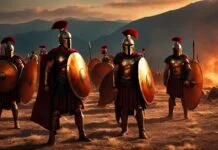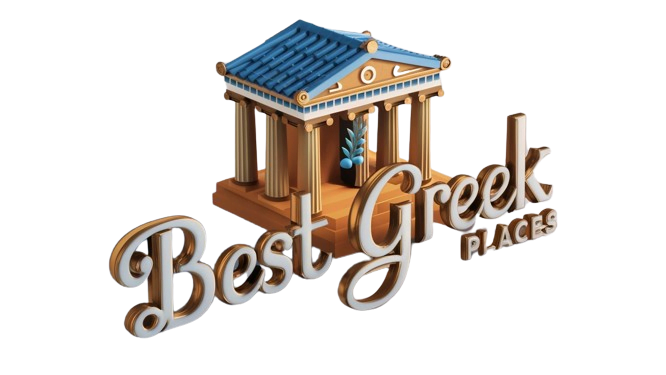The Classical Period of Greek History: A Time of Flourishing Culture and Ideas
The Classical Period of Greek history, spanning from 480 to 323 BC, serves as a remarkable epoch that witnessed the rise of significant philosophical, political, and artistic innovations. This era, marked by the end of the Persian Wars and the eventual conquests of Alexander the Great, laid the groundwork for Western civilization’s development. In this article, we will explore the highlights and pivotal moments of this transformative period, emphasizing the profound impact of Greek culture and ideas.
The Aftermath of the Persian Wars
The conclusion of the Persian Wars heralded a shift in Greek confidence and power. Victories at the battles of Marathon, Salamis, and Plataea not only safeguarded Greek city-states from foreign domination but also instilled a sense of unity among them, fostering a growing sense of identity. This newfound solidarity set the stage for the rise of influential city-states like Athens and Sparta, each contributing to the richness of the era.
The Golden Age of Athens
Emerging as a prominent leader in this post-war landscape, Athens entered its Golden Age during the 5th century BC. This period saw significant advancements in the arts, architecture, and philosophy. Under the stewardship of statesman Pericles, Athens flourished as a center of culture and intellect, where public life buzzed with vibrant debate and artistic expression.
Philosophy Takes Center Stage
The Classical Period was not merely a time of political change; it was also the cradle of Western philosophy. Great thinkers like Socrates, Plato, and Aristotle emerged, shaping the foundation of philosophical thought. Their inquiries into ethics, metaphysics, and politics paved the way for the exploration of human existence in ways that resonate even today. The dialogues of Plato and the teachings of Aristotle became foundational texts that continue to influence contemporary philosophy.
The Birth of Democracy
One of the most significant achievements during this era was the establishment of democracy in Athens. Although limited in scope, as it excluded women and slaves, this system allowed male citizens to participate in government discussions and decisions. The birth of democracy laid the groundwork for future political systems and civic engagement, marking a revolutionary shift in governance.
Art and Architecture: The Triumph of Creativity
The Classical Period is renowned for its extraordinary contributions to art and architecture. The Parthenon, with its stunning Doric columns and intricate sculptures, stands as a testament to Athenian prowess and dedication to beauty. Artists like Phidias and Myron produced works that celebrated human form and emotion, influencing artistic standards for generations to come.
Drama and Literature Flourish
Alongside monumental architecture, theater became an essential element of Athenian life. Playwrights such as Aeschylus, Sophocles, and Euripides crafted profound tragedies that not only entertained but also provoked reflection on the human condition and societal issues. Their works set the stage for dramatic arts in Western culture, emphasizing the importance of storytelling in examining moral dilemmas.
Military Prowess of Sparta
While Athens thrived culturally, Sparta emerged as a formidable military power. The remarkable discipline and rigorous training of Spartan soldiers created an invincible army renowned for its prowess on the battlefield. The contrasts between Athenian democracy and Spartan militarism offer critical insights into the diverse political landscapes of the Classical Period.
The Peloponnesian War: A Turning Point
Tensions between Athens and Sparta escalated, culminating in the devastating Peloponnesian War (431-404 BC). This prolonged conflict shattered the fragile unity of the Greek city-states and led to significant territorial and political shifts. The war not only showcased the perils of internal strife but also marked the decline of Athens as a dominant power.
The Philosophers of the Time
During these tumultuous years, philosophers continued to explore the complexities of human nature and governance. The teachings of Socrates, who famously stated that “the unexamined life is not worth living,” resonated amidst societal upheaval. Meanwhile, Plato’s idea of the "Philosopher King" advocated for wise leadership, providing a blueprint for ideal governance that remains relevant today.
The Rise of Macedon and Alexander the Great
As the Classical Period neared its conclusion, the rise of Macedon under King Philip II marked a new chapter. His son, Alexander the Great, inherited a vast kingdom and embarked on conquests that expanded Greek cultural influence across Asia. His military campaigns not only displayed remarkable strategic brilliance but also facilitated the spread of Greek civilization far beyond its traditional borders.
Cultural Synthesis and Hellenism
Alexander’s empire initiated a period of cultural synthesis known as Hellenism, blending Greek traditions with those of the conquered peoples. This fusion led to advancements in art, literature, and science, enriching the cultural landscape. The legacy of the Classical Period found new expressions as Hellenistic civilization thrived, expanding the ideals established by earlier Greek thinkers and artists.
The End of the Classical Era
The death of Alexander in 323 BC symbolized the end of the Classical Period, yet his influence endured, shaping subsequent civilizations. The fragmentation of his empire and the rise of Hellenistic kingdoms continued to promote the values, philosophies, and artistic achievements birthed during this remarkable era.
Conclusion: The Lasting Impact of Greek Culture
The Classical Period of Greek history stands out for its unparalleled contributions to philosophy, politics, art, and drama. The principles and ideas that originated during this time continue to resonate in contemporary society. As we reflect on this era, we recognize not only the brilliance of Greek achievements but also the enduring legacy of their culture, which remains a cornerstone of Western civilization. Embracing the lessons and ideas from this period helps illuminate our path forward while honoring the intellectual giants upon whose shoulders we stand today.





















